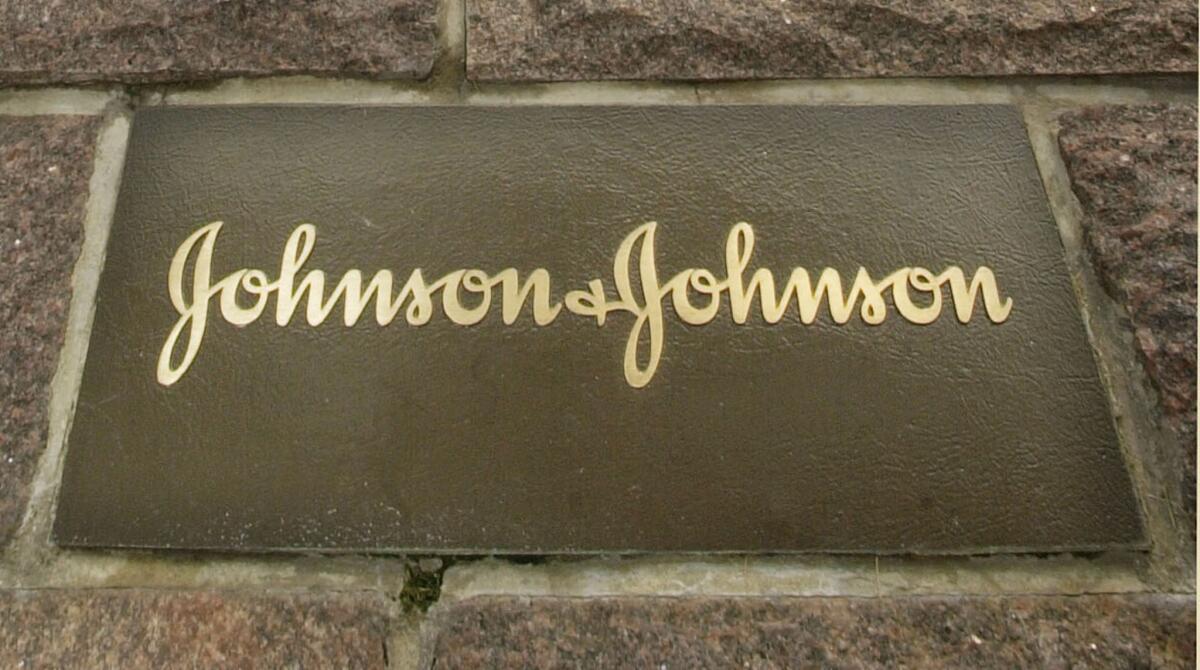Opinion: Legal judgments against big pharma aren’t enough. Consumers need to change their drug habits

On Monday, Johnson & Johnson got hit with a $572-million fine in Oklahoma for misrepresenting the dangers of its opioid medications, Nucynta and Duragesic, thereby causing a “public nuisance.”
The next day, Purdue Pharma and its owners, the Sackler family, offered to put up more than $10 billion to settle thousands of federal and state lawsuits they are facing over their opioid medications.
The media have proclaimed the cash payouts “landmark.”
But, if you’ve been paying attention to news of the pharmaceutical industry in recent years, you know it’s really just business as usual.
Take Johnson & Johnson. The company has been hit with numerous multimillion-dollar jury verdicts in recent years for serious health issues related to its talcum powder, hip implants, pelvic mesh, the anti-psychotic drug Risperdal and other products. The judgments are simply part of the company’s cost of doing business.
Neither the opioid cases nor the myriad other pharmaceutical lawsuits will make a real difference until consumers wake up to the fact that drugs and medical devices aren’t panaceas: They can have tremendous costs and consequences.
American pharmaceutical firms have carpet-bombed communities with drugs, employing aggressive and deceptive marketing. They have pushed their drugs relentlessly, including for uses not approved by the FDA.
Who pays for all of this? We do, through the high price of our drugs and in the human suffering they often cause. Our hunger for easy cures for every ache and illness have made us complicit in our nation’s drug problem — and willing contributors to the pharmaceutical industry $1.2-trillion in global revenues.
Every villain needs a victim and America has long been in denial of its drug addictions. When robber barons were building the Transcontinental Railroad in 1850s, they exploited immigrants to do the back-breaking work. To ease their aches and pains, the Chinese used water-snake oil and the Irish swallowed live frogs. As more immigrants headed west, flimflam men began selling “miracle” remedies from their buckboard wagons. The more successful “doctors” drew crowds with their theatrical productions such as the Kickapoo Indian Medicine Company. After the shows, people would line up to buy elixirs that often contained little more than caffeine, laudanum and 40-proof alcohol. These events grew so numerous that Native Americans referred to the Oregon Trail as “Medicine Road.”
By the 1880s, Bayer was bottling heroin-laced cough syrup and Parke-Davis advertised its cocaine as able to “make the coward brave, the silent eloquent and render the sufferer insensitive to pain.”
These days we recline in our La-Z-Boys and Barcaloungers and consume 30-second TV commercials about name-brand medications to treat just about everything. The U.S. is the one of only a few developed countries that allow drug commercials on TV, and the gauzy feel-good productions star healthy-looking actors who move easily around appealing sets promising us painless lives with our diseases under control. Every commercial comes with an “ask your doctor” disclaimer and a list of potential side effects that consumers — and their doctors — have become adept at ignoring. Negative data from clinical trials are often incompletely published or not published at all. And pharmaceutical companies pay physicians as “consultants,” wining and dining them to “educate” them about the firms’ drugs.
We clearly can’t count on regulators or the drug companies themselves to protect us. Instead, consumers need to realize that every drug comes with both risk and rewards, and both need to be fully analyzed. Many prescription drugs can benefit patients who deal with heart disease, epilepsy, Parkinson’s, glaucoma, depression and dozens of other serious health problems, and there is no doubt that drugs save lives. But there is also no doubt that we over-rely on them for symptoms that can be addressed through habits such as regular exercise, good nutrition, plenty of sleep and weight control.
Before filling a prescription, ask questions of your doctor and the pharmacist, including whether the prescriber has a financial relationship with the maker of the drug. Study the potential side effects and discuss with your doctor what other treatment options exist. And understand that those entertaining drug commercials you watch aren’t that different from the traveling Kickapoo medicine shows of yore.
It’s great that J&J will have to pay Oklahoma for the company’s role in the opioid crisis. But the $562-million fine isn’t going to seriously hurt a company that expects to bring in more than $80 billion in sales this year. For the judgments in this case and the settlements and judgments in other cases to make a difference, consumers have to learn from them.
Yes, lawsuits are an important part of trying to rein in the excesses of big Pharma. But we also need to abandon our faith in miracle cures.
Kathleen Sharp, a journalist and filmmaker, is the author of “Blood Feud: Blowing the Whistle on One of the Deadliest Prescription Drugs.”
More to Read
A cure for the common opinion
Get thought-provoking perspectives with our weekly newsletter.
You may occasionally receive promotional content from the Los Angeles Times.










